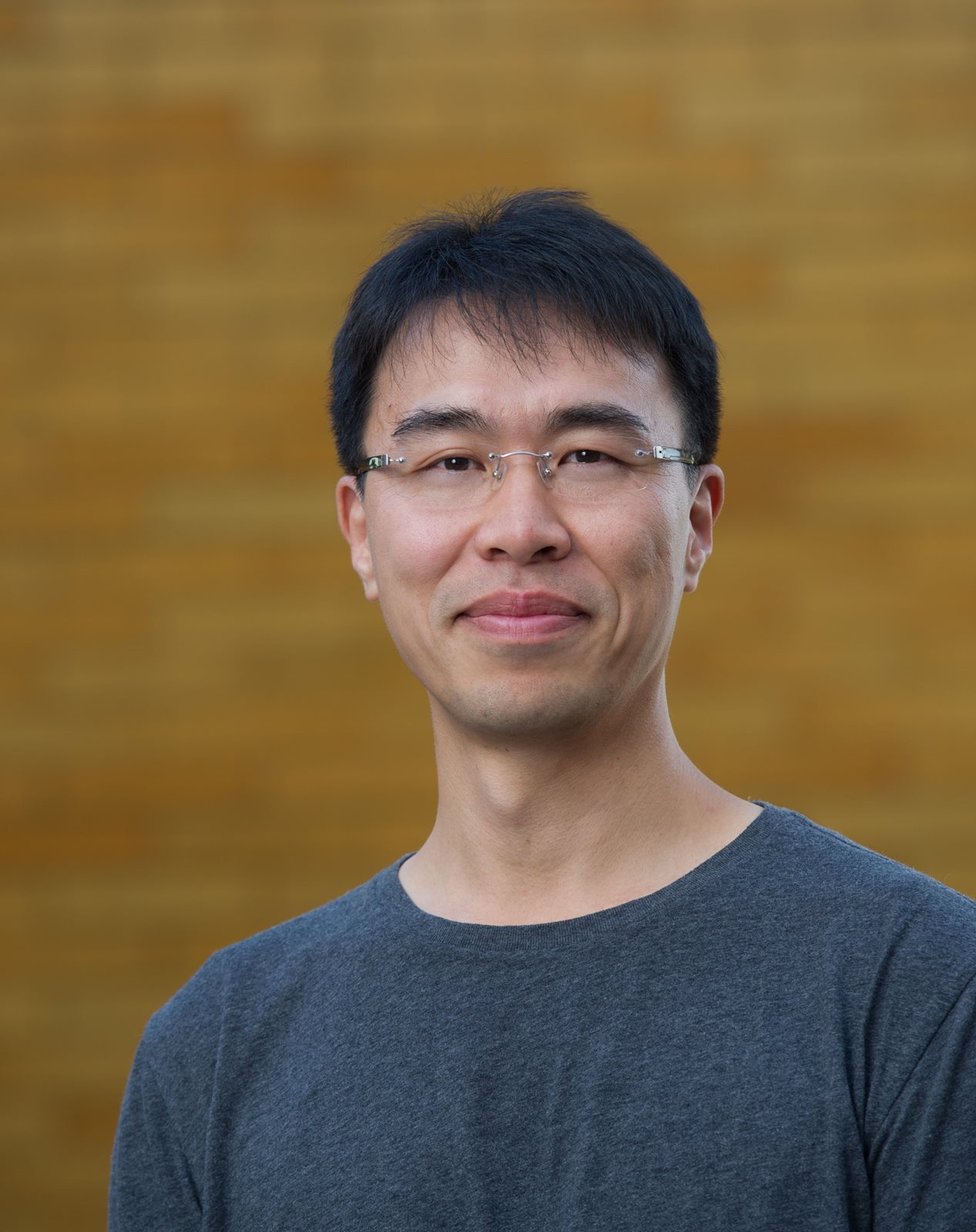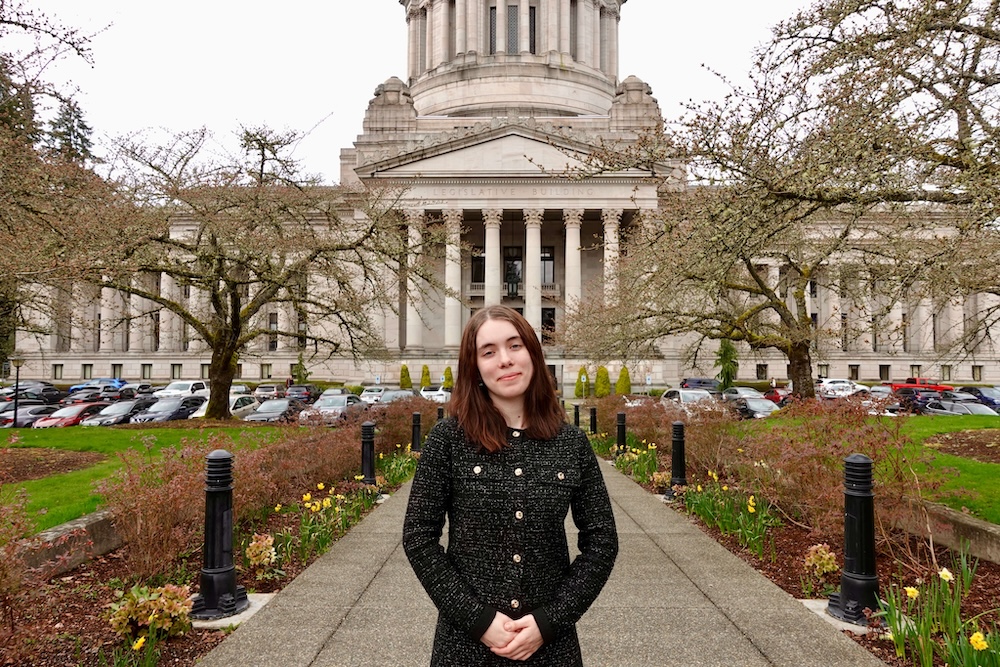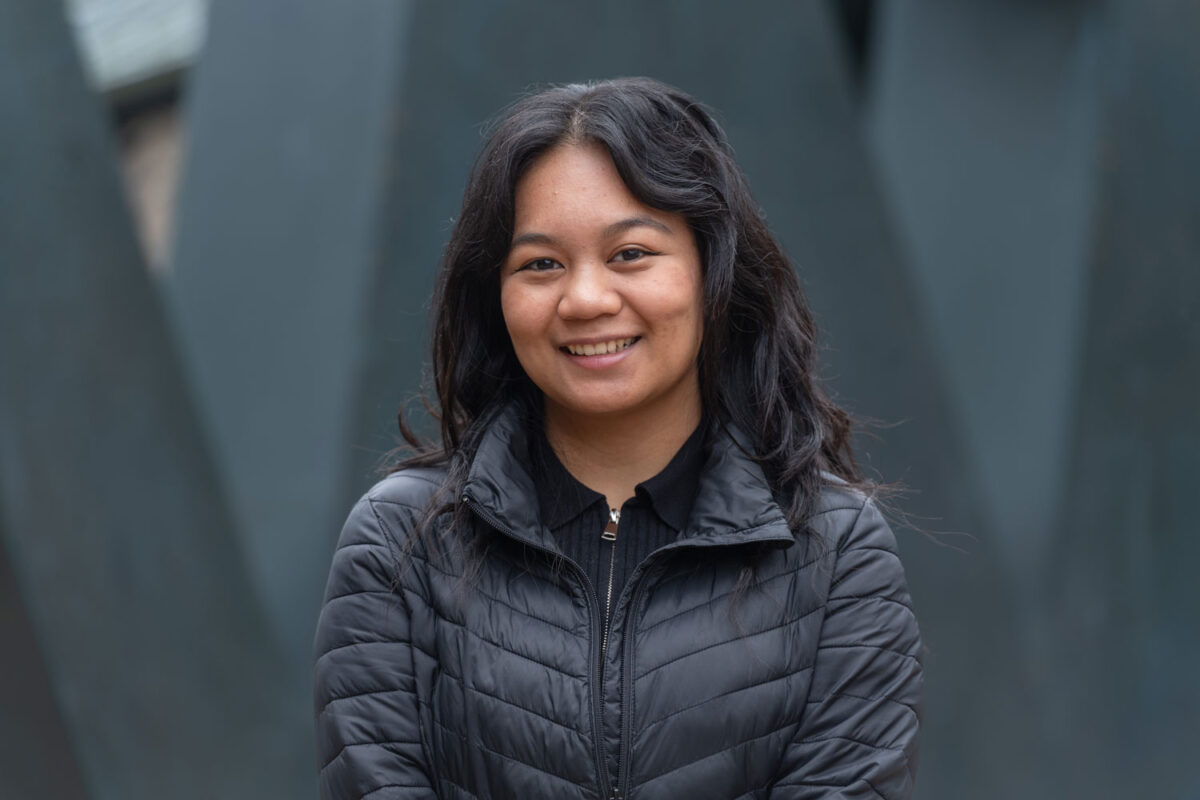By Douglas Esser
Blue Origin, the spaceship company launched by Amazon’s Jeff Bezos, is known for its privacy, but a select group of University of Washington Bothell mechanical engineering students managed to tour the Kent headquarters.
The tour last spring was largely the work of Cameron Whalen, the founder of the UW Bothell student chapter of the American Society of Mechanical Engineers who boldly sees the club and engineering as ways to start changing the world.
Whalen says it was tough to get into Blue Origin, and the students felt very fortunate to have the opportunity to meet people working on new frontiers in aerospace. He made the connections through LinkedIn and says it’s the kind of networking that’s one of the most valuable functions of the student club.
Less than a year old, the club also regularly brings in speakers or panels from the industry to share information about the real world of engineering. Increased student involvement is what Whalen wanted for himself after transferring from Bellevue College.
“I wanted to find a way to engage myself, engage others to ensure that people don’t fall through the cracks,” he says. “From a student perspective I want to see my peers succeed.”
His leadership with the club helped the rising senior land a summer internship with TerraPower, the Bellevue company funded by Bill Gates that’s developing sustainable nuclear energy technology.
“If you’re part of a group such as ASME, particularly one that is newly founded, those companies recognize that you are willing to take a certain amount of self-initiative and are willing to take a risk on you,” Whalen says.
He says he’s been put to work on a meaningful project, “which I can’t talk about.” Longer term, Whalen plans to earn a master’s degree and work in the clean energy field.
“I want to work in a career that has significant change. I’m not interested in making small consumer products, although that’s interesting to me, but I want to work on big projects,” Whalen says.
He also wants the student chapter of ASME to have more events such as an outreach that was held for younger students at the Pacific Science Center. And he wants a hackathon that was hosted by the department to become an annual event.
“I would like to find ways our students can relate their skills to things that have an impact in our community,” he says.
The student ASME chapter and everything else about the mechanical engineering program at University of Washington Bothell is new. It began in 2014 and graduated its first cohort of 28 last spring.
“There is a strong demand, especially from local startups and medium-sized companies” in Bothell, Woodinville, Kirkland and Snohomish County – biomedical, aerospace, and startups and spinoffs, says Jong Yoon, assistant professor School of Science, Technology, Engineering & Mathematics and faculty sponsor of the student ASME chapter. “We want to provide good quality engineers to local companies.”
About 80 percent of the UW Bothell mechanical students enhance their course work by joining the student chapter of ASME, which has 130,000 members worldwide.
This reflects “that our program is very healthy and lively because students are not passively learning from lectures. They learn from their own activities – leadership, social skills, ethical issues, running their own chapter,” Yoon says.
The activities make them more confident and employable.
“They learn something outside their comfort zone,” Yoon says. “Companies prefer students have strong leadership skills. That will make their resume very strong.”






